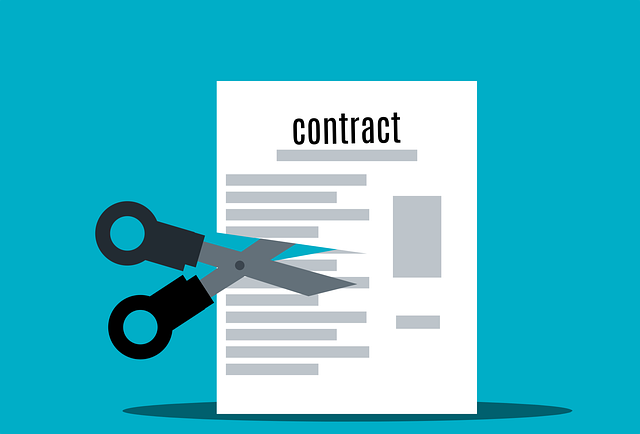Leasehold ownership has long been a contentious issue in the property landscape of the United Kingdom, particularly concerning its implications for homeowners and the wider housing market. In recent years, there has been increasing debate and scrutiny surrounding the leasehold system, with calls for reform and even abolition. As a law firm offering services across England and Wales, it’s imperative to understand the current state of leasehold ownership and the potential for reform in the future. In this article, Will Leasehold Be Abolished In UK, we take a look at the process and mechanism involved.
Free Initial Telephone Discussion
For a free initial discussion with a member of our New Enquiries Team, get in touch with us today. We are experienced in dealing with all the legal aspects of leasehold property, and once instructed, we will review your situation and discuss the options open to you in a clear and approachable manner. Early expert legal assistance can help ensure you are on the best possible footing from the start and also avoid the stress of dealing with these issues on your own. Simply call us on 0345 901 0445 or click here to make a free enquiry and a member of the team will get back to you.
Understanding Leasehold Ownership
Before delving into the prospects of abolition, it’s essential to understand the fundamentals of leasehold ownership. In a leasehold arrangement, the homeowner (leaseholder) holds the property for a specified period, known as the lease term, from the freeholder (landlord). While leasehold ownership grants certain rights and privileges, it also comes with specific obligations and limitations, including the payment of ground rent and service charges.
Calls for Reform
In recent years, leasehold ownership has come under increasing scrutiny due to various issues and concerns raised by homeowners, policymakers, and industry stakeholders. Some of the key issues driving calls for reform include:
Ground Rent Escalation: Concerns have been raised about the practice of escalating ground rents, where the amount of ground rent payable increases significantly over time. This can impose financial burdens on homeowners and make properties less desirable in the resale market.
Lease Extension and Enfranchisement: The process of extending lease terms or purchasing the freehold interest of leasehold properties (known as lease extension or enfranchisement) can be complex, costly, and time-consuming, leading to frustration and dissatisfaction among leaseholders.
Unfair Lease Terms: Some lease agreements contain unfair or onerous terms that restrict homeowners’ rights and freedoms, such as prohibitions on alterations or improvements to the property. These terms can limit homeowners’ ability to enjoy and modify their homes as they see fit.
Lack of Transparency: There have been criticisms of a lack of transparency and clarity in leasehold transactions, with homeowners often unaware of the implications and obligations associated with leasehold ownership until after purchasing the property.
Government Action and Legislative Changes
In response to mounting concerns about leasehold ownership, the UK government has taken steps to address some of the issues through legislative changes and policy interventions. Key initiatives and reforms include:
Ban on Leasehold New-build Houses: In 2020, the government announced plans to ban the sale of new-build houses on a leasehold basis, except in exceptional circumstances. This aims to prevent developers from selling new houses as leasehold properties and curb the proliferation of onerous lease terms.
Ground Rent Reform: The government has proposed reforms to restrict ground rents on new residential leases to a nominal sum (such as £0) and prohibit the use of ground rent escalation clauses. This aims to protect homeowners from excessive ground rent charges and provide greater certainty and affordability in leasehold transactions.
Leasehold Reform Act: The government has indicated its intention to introduce a Leasehold Reform Act to simplify and streamline the process of lease extension and enfranchisement, making it easier and more affordable for leaseholders to extend their leases or purchase their freeholds.
Prospects for Abolition
While the government’s recent actions and proposals represent significant steps towards leasehold reform, the prospect of outright abolition remains uncertain. Abolishing leasehold ownership altogether would represent a fundamental overhaul of property law and could have wide-ranging implications for homeowners, developers, and the housing market as a whole.
Some arguments in favour of abolition include:
Simplification and Fairness: Abolishing leasehold ownership would simplify property transactions, eliminate ground rent charges and leasehold obligations, and provide homeowners with greater security and control over their properties.
Promotion of Homeownership: By abolishing leasehold ownership, more properties would be available on a freehold basis, making homeownership more accessible and affordable for prospective buyers.
Consumer Protection: Abolition would protect homeowners from unfair lease terms, excessive ground rents, and the complexities of lease extension and enfranchisement, enhancing consumer rights and protections.
However, there are also arguments against abolition, including:
Legal and Practical Challenges: Abolishing leasehold ownership would require significant legislative changes and could pose legal and practical challenges, particularly regarding existing leasehold properties and contractual obligations.
Impact on Property Market: Abolition could have unintended consequences for the property market, including disruptions to property values, financing arrangements, and development practices.
Need for Balanced Reform: Instead of outright abolition, some argue for balanced reforms that address the underlying issues of leasehold ownership while preserving the benefits of leasehold for certain types of properties and developments.
Conclusion
In conclusion, the question of whether leasehold will be abolished in the UK remains a subject of debate and speculation. While recent legislative changes and government proposals indicate a commitment to leasehold reform, outright abolition presents significant challenges and implications for property owners and the housing market. As a law firm operating in England and Wales, it’s essential to stay abreast of developments in leasehold reform and provide expert advice and guidance to clients navigating leasehold transactions and property ownership. By understanding the complexities and implications of leasehold ownership, legal professionals can help clients make informed decisions and advocate for their interests in an evolving regulatory landscape.
How we can help
We have a proven track record of helping clients deal with leasehold property. We will guide you through the process and ensure all checks are carried out swiftly and efficiently and we firmly believe that with the right solicitors by your side, the entire process will seem more manageable and far less daunting.
How to Contact Our Commercial Property Solicitors
It is important for you to be well informed about the issues and possible implications of leasehold property. However, expert legal support is crucial in terms of ensuring a positive outcome to your case.
To speak to our Commercial Property solicitors today, simply call us on 0345 901 0445, or click here to make a free enquiry. We are well known across the country and can assist wherever you are based. We also have offices based in Cheshire and London.
Disclaimer: This article provides general information only and does not constitute legal advice on any individual circumstances.





